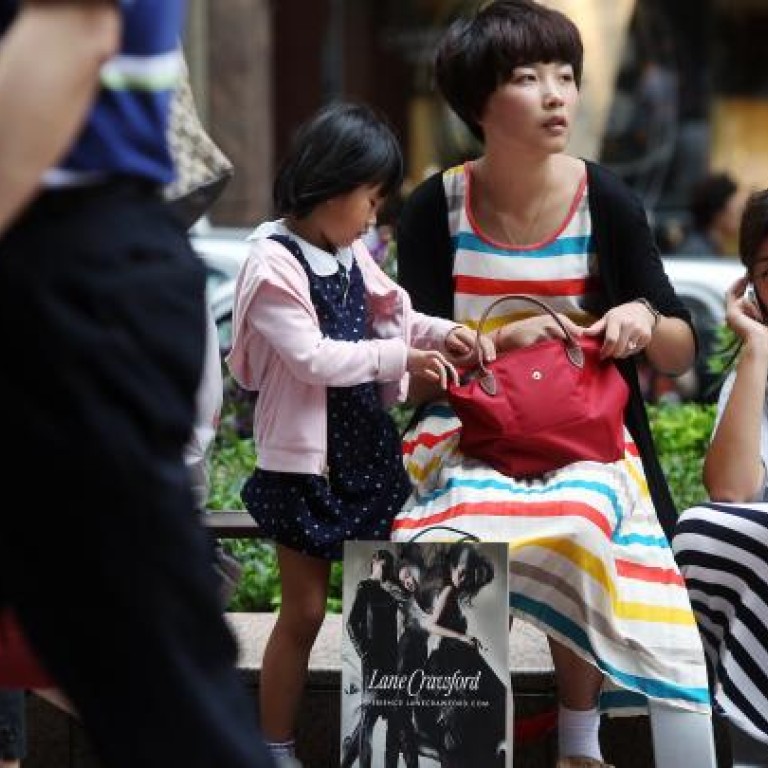
Mainlanders use technology to plan Hong Kong shopping forays
Mainlanders use the internet and social media extensively to plan their shopping trips to Hong Kong, and 95 per cent of mainlanders who have visited the city intend to return.
These details emerged at a seminar that research company Nielsen organised on Thursday to mark the release of its 2012 Mainland Chinese Visitors Study. The seminar had the catchy title, "Tapping the big spenders: Capitalising on the huge potential and wallets of mainland visitors".
The number of mainland Chinese arriving in Hong Kong each year is already more than four times the city's population and that number is growing at 24 per cent a year.
Oliver Rust, managing director for Nielsen in Hong Kong, explained to Stephen Quinn why visitor numbers will increase for the foreseeable future as Mainlanders get richer. The implications for Hong Kong's infrastructure are significant.
Mainlanders shop in Hong Kong for four main reasons. They trust the origins of luxury goods they buy in Hong Kong, which is not the case on the Mainland given the high number of fakes. They believe they can find a wider range and variety of goods, and prices tend to be lower because of the strong yuan.
Some goods, especially high technology, are available sooner in Hong Kong and are status symbols back on the mainland. For example, Nielsen said two in five of the iPhone 5s sold in Hong Kong are taken to China.
Oliver Rust explained to Stephen Quinn why luxury goods tend to be cheaper in Hong Kong compared with the mainland.
The Nielsen research divided Mainland visitors into two groups: the "sophisticates" who return often and the people who are visiting for the first time, which Nielsen categorised as "novices".
The former spend more than the latter and stay longer. The average length of stay in Hong Kong is 3.2 days and the average spend per day is HK$8,200. By far the largest proportion of their expenditure is on shopping -71 per cent.
Almost all visitors use the Internet to research what they will buy, and three in four use social media to discuss their shopping plans. Rust said reliance on word of mouth had risen from 36 per cent to 76 per cent and this development had a direct connection with spending. "The more people spend in Hong Kong, the more they rely on social media to make buying decisions."
Rust said the "sophisticates" buy different brands compared with the "novices" and these groups shopped with different intentions, as he explained in this interview.

